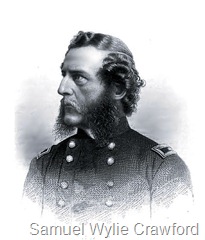June 30.—C. C. Fulton, one of the proprietors and editors of the Baltimore American, was committed to Fort McHenry by order of the Secretary of War.
—Lord Brougham made a speech in the House of Lords concerning the civil war in the United States. His lordship was informed that horrible cruelties and crimes were committed on both sides; he deprecated these barbarities, but he threw no imputation on the character of the American people, for it was incident to and inseparable from civil war that horrible crimes should occur. He thought that neither England nor France should interfere. But all must have felt equally anxious that the conflict should cease. Those who were most friendly to America were the most anxious that this should take place, and he had ever been most friendly to her. If war was to go on, it would produce a state of things worse than American slavery. The whites would suffer more by the war than ever the negroes suffered under the most cruel masters. It was his lordship’s opinion that the war was creating more mischief and misery, and would lay the foundation of more lasting animosity and injury than all that had been said against what was called the “domestic institution.” If the Americans would only listen to their true friends, they would see the absolute necessity, if they regarded the continuance of their reputation in Great Britain, and the affection entertained for them there, of putting a speedy end to the civil war. This was what the truest and staunchest friends of America most ardently desired.
—General Crawford, with a portion of his brigade and a cavalry force under Col. Tompkins, made a reconnoissance in force up the Valley of the Shenandoah, and entered Luray, Va., this morning, driving out the rebel picket-guard, and capturing one of them. Four companies of rebel cavalry which occupied the town fled on his approach. They were pursued a mile out on the New-Market road, when a skirmish ensued, the cavalry charging the rebels, wounding several of them, and capturing four prisoners. The Union loss was one killed and three wounded. The object of the reconnoissance was fully accomplished. —The bombardment of Vicksburgh was reopened to-day at two P.M., and continued all night.
—General Butler, at New-Orleans, issued the following order: John W. Andrews exhibited a cross, the emblem of the sufferings of our blessed Saviour, fashioned for a personal ornament, which he said was made from the bones of a Yankee soldier, and having shown this, too, without rebuke, in the Louisiana Club, which claims to be composed of chivalric gentlemen:
It is therefore ordered, that for this desecration of the dead, he be confined at hard labor for two years on the fortifications at Ship Island, and that he be allowed no verbal or written communication to or with any one except through these headquarters.—Special Order, No. 152.
—A Turnpike bridge between Harrodsburgh and Ferryville, and another between Nicholasville and Pekin, Ky., were burned, supposed by rebel guerrillas.—Louisville Journal, July 1.
—The United States gunboat Sagamore made an attack upon the town of Tampa, Fla. After firing sixty or seventy shells, she succeeded in silencing the battery on shore, but finding it impossible to get near enough to the town to protect the boats that intended to land, she was obliged to retire without effecting the object for which she went.
—Fidel Keller and Mrs. Philip Phillips, of New-Orleans, were arrested by order of Major General Butler, and sent to Ship Island. The first for “exhibiting a human skeleton, labelled ‘Chickahominy,’ in his bookstore window,” and the latter for laughing and mocking at the remains of Lieut. De Kay, during the passage of his funeral procession before her residence.
—The battles of Glendale or White Oak Swamp, and Charles City Cross-Roads, Va., were fought this day.—(Doc. 78 and Supplement.)



